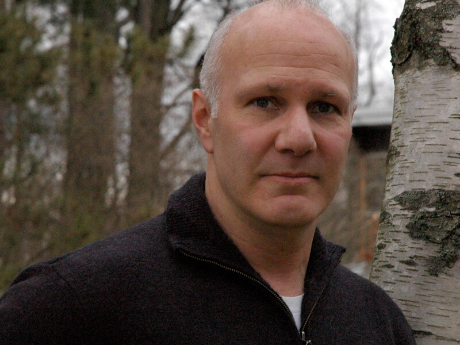On Poetry
On Complexity: Henri Cole

Complexity is not smoke. It is a forest. In a forest I feel self-forgetful. I feel mortal with an animal body. I feel embraced by uncertainty, I feel the seepage and pain of human things—marriage, loss, childhood, fathers, mothers, loneliness—buried there. In smoke I feel oppressed. I feel my mouth against a wall of vapor that is dense, oblique and unbreathable.
A poem can be metrically complex or syntactically complex. It can be thematically complex, psychologically complex or verbally complex. But if it is none of these thing, I am left thinking. "Is that all?" I prefer obsessiveness in poetry—the obsessiveness of a servant pleasing his master, which is language. Language is the human medium. If our desire is merely to use it to communicate—as in a classroom or newspaper or cookbook—complexity is not a virtue. It is affected and troublesome and distracting. But we are Imaginers. No poem is just its autobiographical content. No poem is just its embroidery of language. As a reader, I favor poems that have multiple textures, moving freely from plain-speech, to silken discursive meanderings, to turgid description, to little abrupt narrations, etc. But all poetic language must be soaked in the oil of human feeling, even when resisting our intelligence: "speech alone/ Doth vanish like a flaring thing,/ And in the ear, not conscience ring," George Herbert cautions in his poem "The Windows."
Lately, it has become fashionable to make poems in which the self is invisible. This writing pulses with perception and with intimations of urgent, humanistic desire but is stripped of any coherent moral, ethical, civic or even autobiographical consequence. This writing is striking for its mysterious self-confidence. Yet, in the willful obscuring of the self there is a deep narcissism that says, "I am God. I hide my face." This is pretentiousness wearing the mask of power and complexity. The mask reveals nothing but what it hides. No human core emerges. Language heats up but does not convey knowledge or formulate truths. Such writing is sometimes praised for its stylistic ambition, though style can be monolithic, blocking out the forces that result in poetry, the forces of irrepressible emotion: joy, grief, desperation, triumph. As we begin a new century, when even the Heavens (the house of our souls) are at risk of being blown away in a nuclear war or accident, I favor a poetry where the soul (both the poet's spirit and representation of personality) is not occluded by language, not perishable, and not anesthetized by ambition.
Complexity should be defended when it invigorates poetic language but guarded against when its corrosive agents prevent us from feeling the flesh that makes us human. All of life is a longing for unity, a unity that is permanent. A poem temporarily creates the illusion of unity, filling up the reader with the poet's words, with the passion and purity of a soul in dialog with itself, and with the ornamental graphic that ink makes on a page. Nothing should obscure this act. There is offense, even injury, in that which does.
Originally published in Crossroads, Spring 2000

